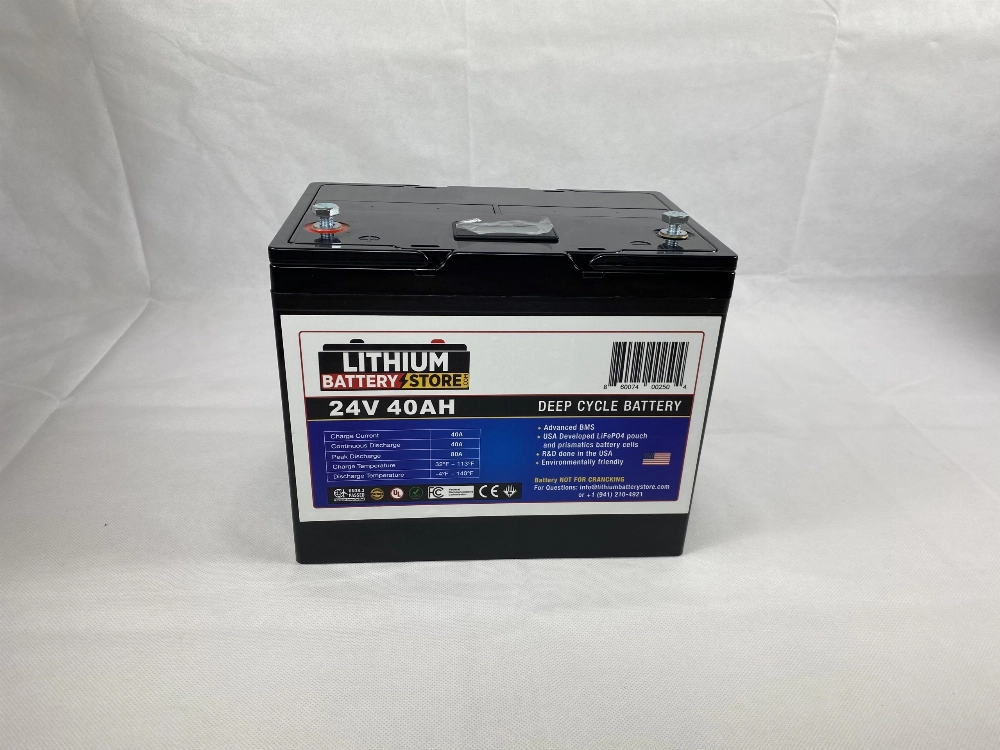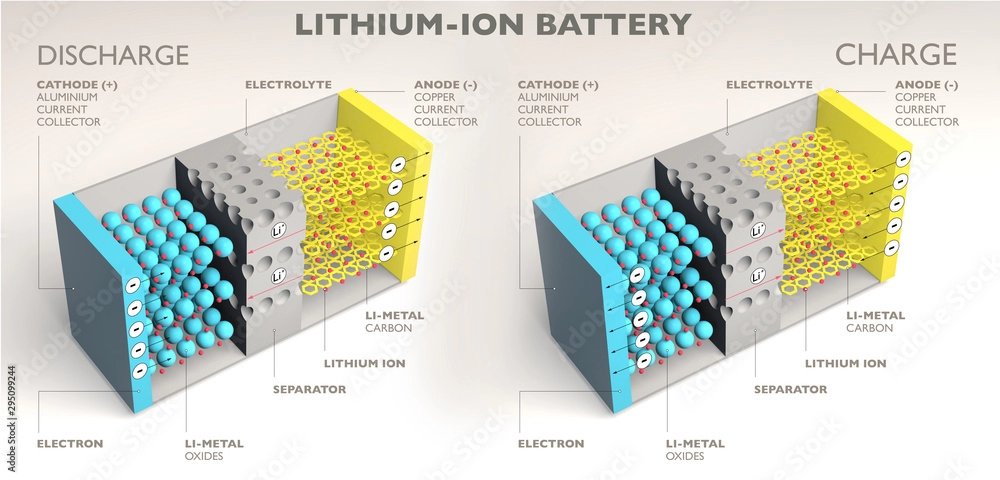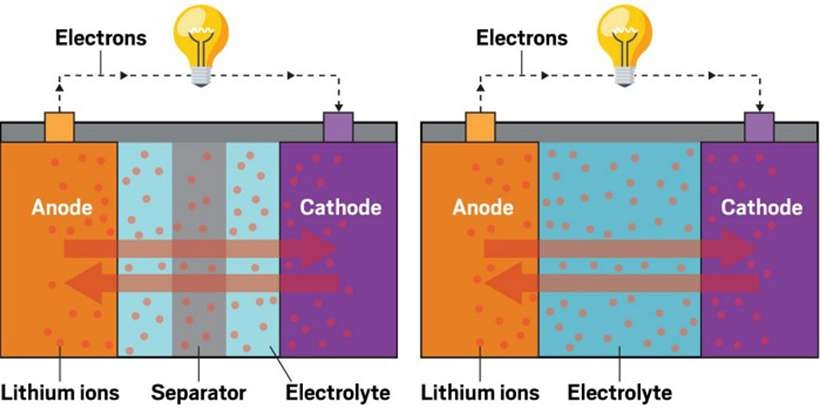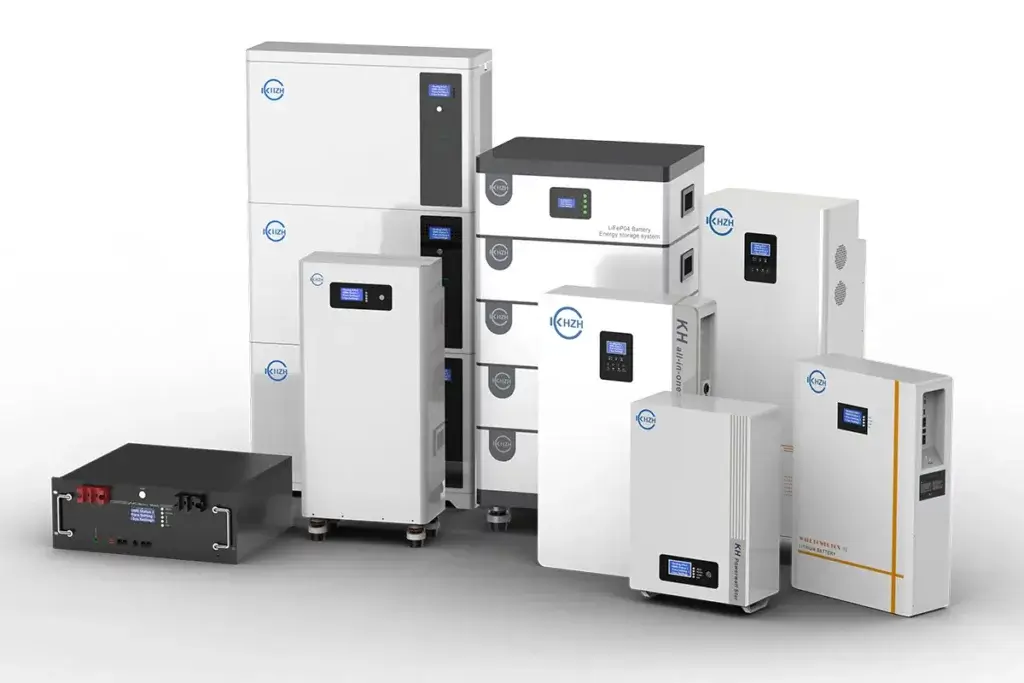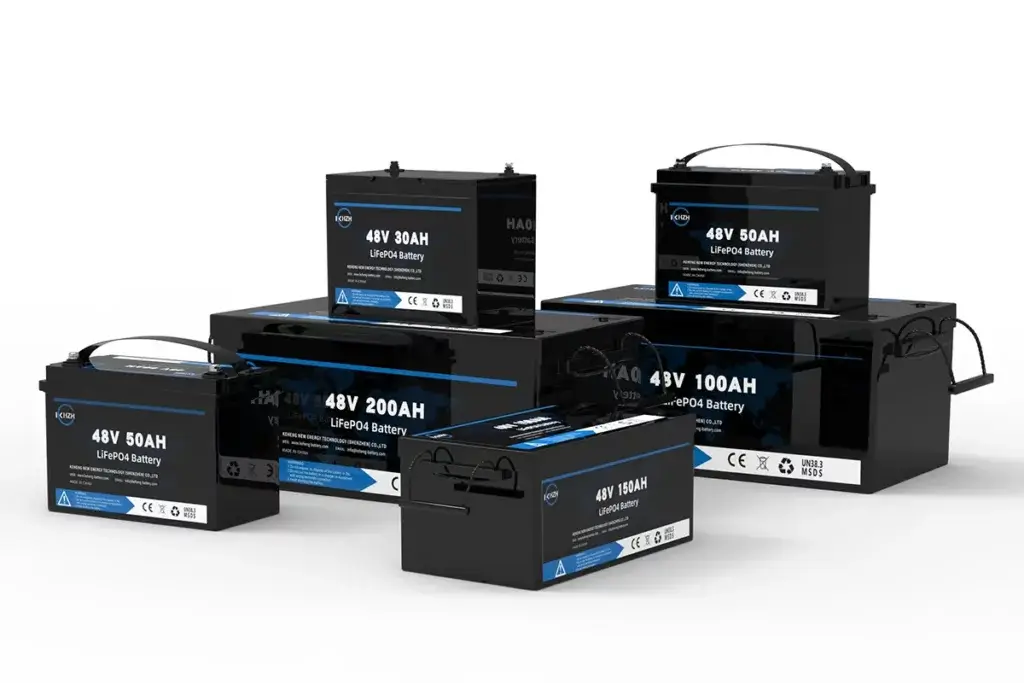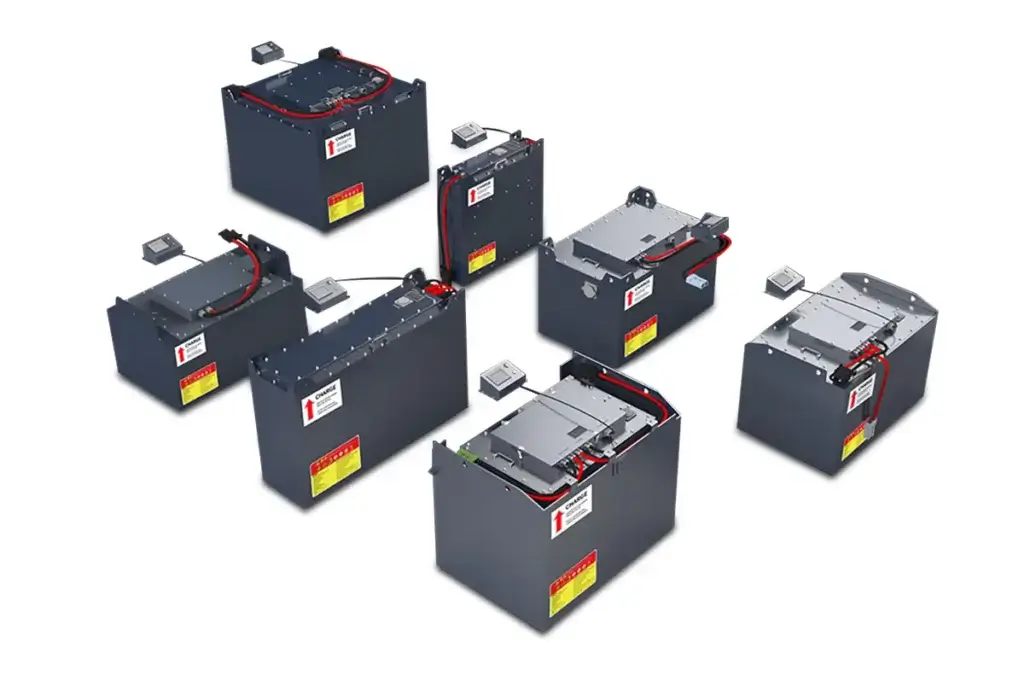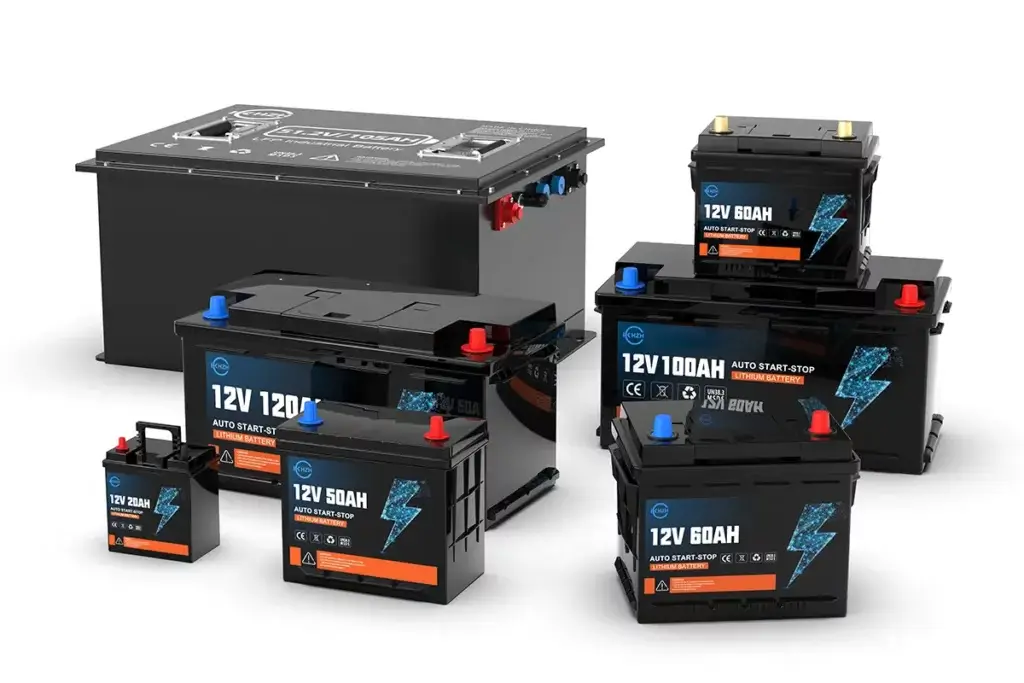The world is rapidly transitioning to a more sustainable future, and at the heart of this transformation lies the power of batteries. Among the numerous energy storage solutions available today, 24V lithium-ion batteries are emerging as a dominant force, fueling innovation across industries. From electric vehicles and solar energy systems to industrial equipment and off-grid living, these powerful energy sources are revolutionizing the way we store and use electricity.
However, with the myriad of options and technical details to consider, selecting the right 24V lithium-ion battery can seem overwhelming. This guide aims to give you the knowledge you need to navigate this growing field, ensuring you make informed decisions and unlock the full potential of these advanced batteries.
Part 1: Overview of 24V Lithium-Ion Batteries

24V lithium-ion batteries are high-performance energy storage devices that offer significant advantages over traditional lead-acid batteries. With a higher voltage, these batteries provide enhanced power output, making them ideal for applications requiring higher energy efficiency and reliability.
Key Applications of 24V Lithium-Ion Batteries:
- Electric Vehicles: Powering golf carts, electric cars, and scooters, ensuring sustainable transportation solutions.
- Solar Energy Storage: Storing energy from solar panels, providing reliable power even during low-light conditions.
- Off-Grid Living: Providing electricity for off-grid homes and businesses, reducing reliance on traditional power grids.
- Industrial Equipment: Enhancing the efficiency of forklifts, power tools, and other industrial applications, enabling cleaner and more efficient workplaces.
Part 2: Types of 24V Lithium-Ion Batteries
The world of 24V lithium-ion batteries is diverse, with different chemistries offering unique advantages. Understanding these distinctions is crucial for selecting the right battery for your specific needs.
1. Lithium Iron Phosphate (LiFePO4): The Reliable Workhorse
LiFePO4 batteries are widely favored for their exceptional safety, long lifespan, and stable performance. Unlike other lithium-ion batteries, they exhibit superior thermal stability, reducing the risk of overheating and fire.
Key Features:
- High Safety: Their inherently stable chemistry minimizes risks, making them ideal for applications where safety is paramount.
- Long Cycle Life: Capable of withstanding over 2,000 charge cycles, ensuring long-term reliability.
- Excellent Thermal Stability: Performs well even in high-temperature environments.
- Environmentally Friendly: Free from harmful heavy metals like cobalt and nickel, making them environmentally sustainable.
Best Applications:
- Electric Vehicles
- Solar Energy Storage Systems
- Backup Power Solutions
- Off-Grid Living
2. Lithium Nickel Manganese Cobalt Oxide (NMC): The Balanced Performer
NMC batteries offers a good balance of power output, stability, and energy density. These batteries are commonly used in applications that require a combination of high performance and long lifespan.
Key Features:
- High Energy Density: Offers high energy density in a compact and lightweight design.
- Strong Power Output: Well-suited for high-demand applications.
- Moderate Cycle Life: Offers a decent lifespan, although not as long as LiFePO4 batteries.
Best Applications:
- Electric Bicycles
- e-bikes
- Power Tools
- Certain Electric Vehicles
3. Lithium Cobalt Oxide (LCO): High Energy for Compact Devices
LCO batteries are known for their high energy density, making them a popular choice for portable electronics and small-scale applications.
(More content about LCO batteries can be included based on user preference.)
By understanding the different types of 24V lithium-ion batteries, you can choose the best solution for your specific energy storage needs. At KHZH, we are dedicated to helping you realize the full potential of lithium-ion technology for a greener, more efficient future. For more information on energy storage solutions, visit our Home Battery Backup Systems Guide.
LCO (Lithium Cobalt Oxide) Batteries: A Popular Choice for Consumer Electronics
LCO (Lithium Cobalt Oxide) batteries are widely used in consumer electronics such as smartphones, laptops, and other portable devices. Known for their high energy density and relatively affordable cost, these batteries provide excellent performance for devices that require a compact power source. However, they are somewhat less durable and safe compared to alternatives like LiFePO4 or NMC.
Key Features
- High Energy Density: LCO batteries are known for their impressive energy density, allowing them to store a significant amount of energy in a compact volume.
- Relatively Low Cost: Often more affordable than alternatives like LiFePO4 or NMC, LCO batteries offer an attractive option for cost-sensitive applications.
Applications
LCO batteries are primarily used in consumer electronics, including smartphones, laptops, and other portable devices, where their high energy density and compact size make them an ideal choice for powering modern devices.
Key Parameters to Consider for 24V Lithium-Ion Batteries
When selecting a 24V lithium-ion battery, it’s crucial to consider the key parameters that define its performance and capabilities.
1. Capacity: Energy Storage Capability
Capacity, measured in Ampere-hours (Ah), indicates the amount of energy the battery can store. Higher capacity results in longer run times and the ability to power more demanding applications.
2. Voltage: The Driving Force
Voltage measures the battery’s electrical potential. For example, a 24V battery has a higher voltage than a 12V battery, enabling it to deliver more power. This is crucial for applications requiring higher voltage, such as electric vehicles and large solar systems.
3. Cycle Life: A Measure of Longevity
Cycle life refers to the number of times a battery can be fully charged and discharged before its capacity significantly decreases. A higher cycle life indicates greater longevity, increasing its value.
4. Temperature Range: Operating Within Limits
The temperature range specifies the optimal operating temperatures for the battery. Operating outside this range can compromise battery performance and lifespan. It’s crucial to choose a battery that operates effectively within the expected environmental conditions.
Common Capacities of 24V Lithium-Ion Batteries
24V lithium-ion batteries are available in a range of capacity options, each suitable for different applications.
1. 100Ah: A Versatile Choice
A 100Ah 24V lithium-ion battery is ideal for various applications, including:
- Electric Vehicles: Suitable for powering smaller electric vehicles such as golf carts, e-bikes, and light electric vehicles.
- Solar Energy Storage: Ideal for storing energy generated by solar panels, powering homes or businesses with renewable energy.
- Backup Power Systems: A reliable backup power source during power outages, ensuring essential appliances and devices remain operational.
2. 200Ah: High Capacity for Demanding Applications
The 200Ah 24V lithium-ion battery’s greater capacity makes it ideal for more demanding applications, such as:
- Electric Vehicles: Powering larger electric vehicles, including passenger cars and light trucks.
- Large Solar Systems: Storing energy generated by larger solar installations, providing power for entire homes or businesses.
- Off-Grid Living: Suitable for off-grid living, providing reliable power for essential appliances and devices.
3. 300Ah: A Robust Power Source
The 300Ah 24V lithium-ion battery is a robust power source designed for demanding applications. It is commonly used for:
- Heavy-Duty Electric Vehicles: Powering large electric vehicles such as buses, trucks, and heavy machinery.
- Large-Scale Solar Power Systems: Used for storing vast amounts of energy generated by large solar power plants, powering entire communities or industrial facilities.
- Off-Grid Power Solutions: Ideal for off-grid living situations that require significant energy storage to sustain operations.
Part 5: Selecting the Right Battery – A Step-by-Step Guide
Selecting the ideal 24V lithium-ion battery requires careful evaluation of your specific needs, budget, and priorities. This step-by-step guide will help you make an informed choice:
1. Determine Your Application Needs: What will it power?
- Identify your primary application: Will you be using the battery for electric vehicles, solar energy storage, or as a backup power source?
- Determine your power requirements: Understand what devices the battery needs to power and how long each device needs power.
- Consider environmental factors: Will the battery be exposed to extreme temperatures or harsh conditions?
2. Set Your Budget: Balancing Costs and Value
- Establish a realistic budget: Evaluate the price ranges of different battery types and brands.
- Consider long-term costs: A high-quality battery with a longer cycle life may be more cost-effective in the long run.
3. Examine Brand Reputation: Reputation Matters
- Look for reputable manufacturers: Seek out established brands known for their quality, reliability, and customer service.
- Read reviews and testimonials: Gain insights from real-world experiences to assess the performance and durability of different batteries.
4. Consider Key Parameters: Align Parameters with Your Needs
- Capacity: Choose a battery that provides sufficient capacity to meet your power needs.
- Voltage: Ensure that the battery’s voltage matches the voltage requirements of your devices.
- Cycle life: Select a battery with a higher cycle life for better longevity and overall value.
- Temperature range: Choose a battery designed to operate within your expected temperature range.
5. Don’t Forget the Charger: A Crucial Component
- Compatibility: Ensure that the charger is compatible with the battery’s specifications.
- Features: Look for additional features like overcharge protection, smart charging, and fast charging capabilities.
Part 6: Charging and Maintenance – Extending Battery Life
Proper charging and maintenance are essential for maximizing the lifespan of your 24V lithium-ion battery.
1. Regular Charging: Avoid Deep Discharges
- Charge regularly: Prevent deep discharges, as they can shorten the battery’s lifespan.
- Follow manufacturer’s recommendations: Always use the recommended charger and adhere to proper charging techniques.
2. Storage: Keep it Cool and Dry
- Store in a cool, dry place: Exposure to high temperatures and humidity can damage the battery.
- Avoid direct sunlight: Direct sunlight can negatively impact battery performance.
3. Inspection: Detect Issues Early
- Inspect regularly: Check for any signs of damage, leaks, or corrosion.
- Address issues promptly: If you notice any problems, contact the manufacturer or a certified technician for assistance.
Part 7: Conclusion
The 24V lithium-ion battery market is constantly evolving, offering a wide range of solutions for a more sustainable future. By understanding the different battery types, key specifications, and essential considerations outlined in this guide, you can make informed decisions tailored to your unique needs.
